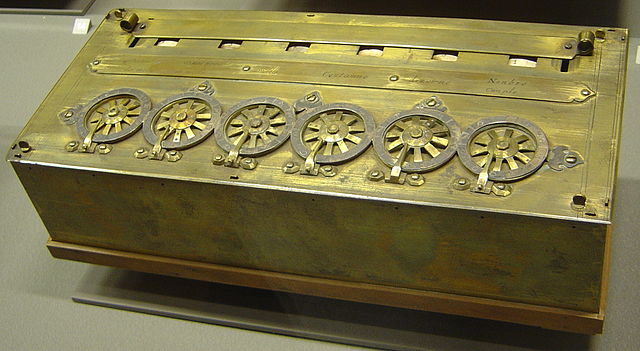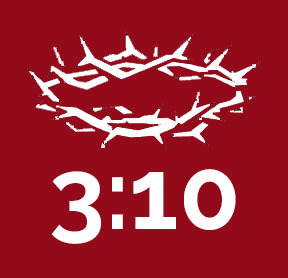Blaise Pascal (1623-1662)

Blaise Pascal by Unknown Painter
Wikimedia Commons
A Brilliant Mathematician & Scientist
Blaise Pascal was born in France in 1623 and became one of the most important scientists and mathematicians of the seventeenth century. His father recognised his prodigious talents when he was still young and tutored him at home. By the age of sixteen he was already making discoveries in mathematics and engaging in academic debates with professional mathematicians. At the age of nineteen he invented a mechanical calculator called the Pascaline - a precursor of the modern computer - to help his father who was a tax inspector in Paris.

Pascal's mechanical computer The Pascaline
Photo: © 2005 David Monniaux, Wikipedia
Pascal's Mathematical & Scientific Genius
Pascal made an important contribution to the study of mathematical probability theory as well as conducting ground-breaking experiments in fluid mechanics and hydraulics, leading to his famous law which states that pressure on the surface of a fluid is transmitted equally to every point in a fluid. He also conducted research into the properties of a vacuum, and the weight and density of air. He is credited with inventing the syringe, the hydraulic lift, and the wristwatch.
Pascal's Religious Life & Conversion
Pascal grew up in Roman Catholic France but became interested in the Jansenist wing of Roman Catholicism, which was regarded as a heretical sect by the Catholic Church because it preached the doctrine of salvation by grace and not as a result of good works. His sister Josephine entered a convent and Blaise was affected by his father's death in 1651 and by an accident when the carriage in which he was travelling crashed off the road.
On the evening of 23rd November 1654 he had an overwhelming experience of God, which he referred to as his Night of Fire. For about two hours from half past ten till just after midnight he was overwhelmed by what seems to have been the baptism of the Holy Spirit. He recorded his experience on a piece of paper which was found sewn into his jacket shortly after he died in 1662.
The year of grace 1654,
Monday, 23 November, feast of St. Clement, pope and martyr, and others in the martyrology. Vigil of St. Chrysogonus, martyr, and others. From about half past ten at night until about half past midnight,
FIRE.
GOD of Abraham, GOD of Isaac, GOD of Jacob
not of the philosophers and of the learned.
Certitude. Certitude. Feeling. Joy. Peace.
GOD of Jesus Christ.
My God and your God.
Your GOD will be my God.
Forgetfulness of the world and of everything, except GOD.
He is only found by the ways taught in the Gospel.
Grandeur of the human soul.
Righteous Father, the world has not known you, but I have known you.
Joy, joy, joy, tears of joy.
I have departed from him:
They have forsaken me, the fount of living water.
My God, will you leave me?
Let me not be separated from him forever.
This is eternal life, that they know you, the one true God, and the one that you sent, Jesus Christ.
Jesus Christ.
Jesus Christ.
I left him; I fled him, renounced, crucified.
Let me never be separated from him.
He is only kept securely by the ways taught in the Gospel:
Renunciation, total and sweet.
Complete submission to Jesus Christ and to my director.
Eternally in joy for a day’s exercise on the earth.
May I not forget your words. Amen.
Pascal's Writings About Faith & Reason
Pascal made notes of his thoughts about religious beliefs and reason called Pensees ( French for 'thoughts'). In them he explores the different realms of faith and reason, commenting that reason has its limtations and is inferior to revelation and faith. In a famous quote he wrote:
"Faith has its reasons of which reason knows nothing."
For more on the roles of faith and reason, go to THE ROLES OF FAITH & REASON.



